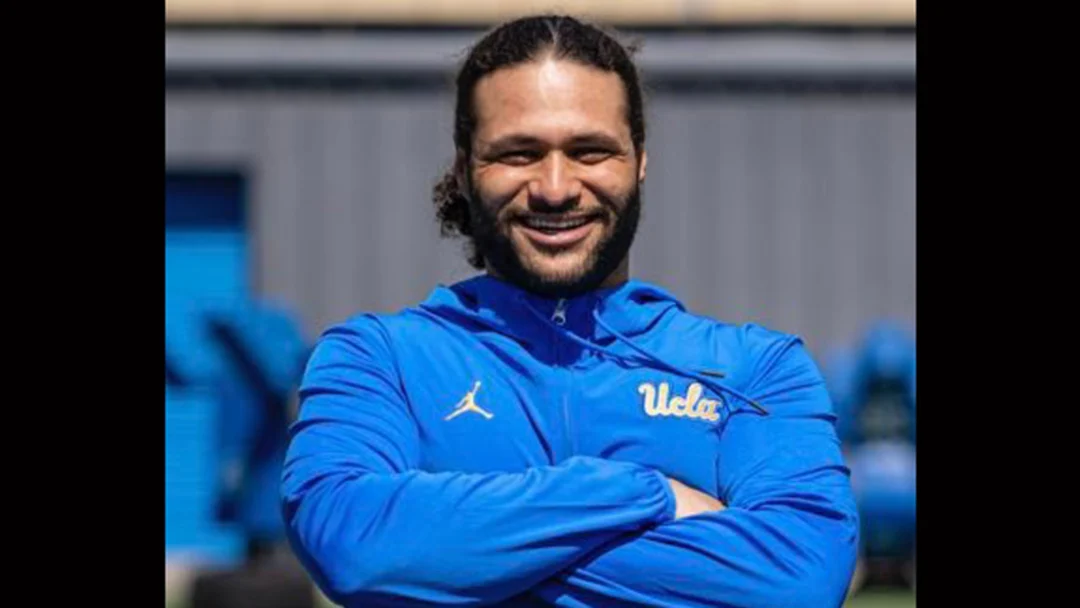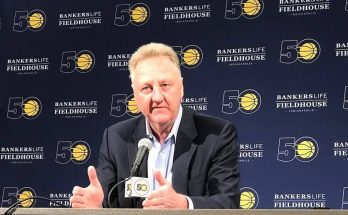In a move that signals the University of Oklahoma’s commitment to remaining among the elite programs in college football, the Sooners are expected to hire UCLA’s Stacey Ford for a key front office role. Ford, currently the Director of Player Personnel for the Bruins, has garnered widespread respect across the collegiate landscape for his sharp recruiting acumen, talent evaluation skills, and strategic vision for building sustainable success. His addition to Oklahoma’s staff is seen as a forward-thinking investment that could shape the future trajectory of the program as it transitions deeper into SEC play.
Ford’s rise through the ranks of college football operations is nothing short of impressive. A former college football player himself, Ford has walked the walk before he ever talked the talk. He played at Tuskegee University, where he earned a degree in psychology and a minor in business administration. That educational background, combined with his firsthand experience on the field, equipped him with a deep understanding of what makes players and teams tick — physically, mentally, and emotionally. That insight has been a cornerstone of his professional approach to building successful rosters and cultivating a culture of excellence.
Before stepping into the spotlight at UCLA, Ford’s career included time as a player personnel intern with the then-Oakland Raiders and coaching roles at the high school level in Southern California. Those early years were spent refining his ability to recognize raw talent, evaluate fit within various systems, and, just as importantly, connect with young athletes on a personal level. As a coach at Cathedral High School and Warren High School in California, Ford helped develop some of the region’s top prep talent. At Warren, he was part of a staff that led the team to consecutive undefeated regular seasons and league championships. His ability to mold talent and orchestrate success was already evident, even before he made the leap to the collegiate ranks.
Ford eventually transitioned to Washington State University, where he served as the Director of Recruiting. There, he established himself as a relentless recruiter and detail-oriented strategist, earning recognition for helping the Cougars compete at a high level despite not having the same resources or national spotlight as some of their Pac-12 peers. His ability to find diamonds in the rough and cultivate relationships across the country made him a rising star in recruiting circles. That reputation only grew when he joined UCLA under new head coach DeShaun Foster. With the Bruins in the midst of a rebuild and a transition of their own, Ford’s impact was felt immediately.
At UCLA, Ford emphasized a return to local recruiting. His approach focused on reestablishing the Bruins’ foothold in Southern California, one of the most talent-rich areas in the country. Instead of leaning heavily on the transfer portal or JUCO ranks, Ford made it a priority to develop relationships with high school coaches, players, and families in the region. His philosophy was simple: build from within, develop talent, and create pipelines that would serve as long-term assets for the program. One of his most notable victories came when he played a central role in securing the commitment of top quarterback Madden Iamaleava, a major coup for the Bruins that sent a clear message about the program’s renewed recruiting strength.
Ford’s approach to player personnel is not just about recruiting rankings or highlight tapes. He is known for prioritizing character, work ethic, and system fit — attributes that are crucial for long-term program building. His reputation among high school coaches and fellow recruiters is that of someone who listens, communicates clearly, and follows through. Those are rare traits in a recruiting world that can often feel transactional. Ford brings authenticity and a genuine commitment to the athletes and their futures, which has endeared him to families and prospects alike.
Now, Oklahoma will be the beneficiary of those qualities. The Sooners, under head coach Brent Venables, have already made significant strides in recruiting and player development, but Ford’s arrival could add another dimension to the operation. His experience in navigating the volatile waters of the Pac-12, recruiting in competitive markets, and aligning staff goals with player evaluation is expected to be a perfect fit in Norman. More than that, Ford’s expertise could prove vital as Oklahoma continues to transition into the Southeastern Conference, where recruiting competition reaches a fever pitch.
The move to bring Ford into a front office role also reflects a broader shift in how college football programs are building their infrastructure. It’s no longer just about the head coach and on-field assistants. Today’s elite programs operate more like NFL franchises, with sophisticated departments for recruiting, player personnel, scouting, analytics, and more. Ford’s background makes him uniquely equipped to navigate that complexity. He’s done it all — from evaluating tape to closing deals with five-star prospects — and that versatility makes him a valuable piece of the puzzle.
It’s expected that Ford will have influence not only over traditional high school recruiting but also in portal strategy, roster management, and long-term personnel planning. His voice will be heard in war rooms and coaching meetings alike, and that’s exactly what Oklahoma wants. The Sooners are not just trying to win games — they’re trying to build a machine. A sustainable, consistent, and nationally dominant program that can go toe-to-toe with Alabama, Georgia, LSU, and the rest of the SEC heavyweights. For that, they need leaders like Ford behind the scenes making sure every move is calculated and intentional.
Ford’s move also represents a personal milestone in his career. From coaching high school ball in California to now holding a key leadership role at one of the most storied programs in college football, his journey is a testament to hard work, vision, and integrity. Those who’ve worked with him speak glowingly about his professionalism and commitment to doing things the right way. At a time when college athletics is under immense pressure from NIL dynamics, transfer portal chaos, and coaching carousel uncertainty, Ford stands out as a stabilizing force. He’s not caught up in the trends or hype — he’s focused on the fundamentals, the relationships, and the systems that produce winners.
While UCLA will no doubt feel his absence, Ford’s legacy in Westwood is secure. He helped set the foundation for a more disciplined, focused, and efficient recruiting operation. Those systems and relationships will continue to benefit the Bruins, but Oklahoma’s gain cannot be overstated. With Ford joining the Sooners’ front office, the program is positioning itself to stay ahead of the curve in an era where strategic planning off the field is just as important as execution on it.
Looking ahead, Ford’s influence may not always make headlines, but it will certainly be felt in the wins and losses. Recruiting is the lifeblood of college football, and those who manage it best usually rise to the top. By hiring Ford, Oklahoma is betting on a builder — someone who doesn’t just chase stars but builds programs. His track record suggests the bet will pay off.
As the Sooners prepare for their next chapter in the SEC, they’ll do so with one of the most respected minds in college football talent evaluation in their corner. Stacey Ford’s arrival isn’t just a hire. It’s a statement.



